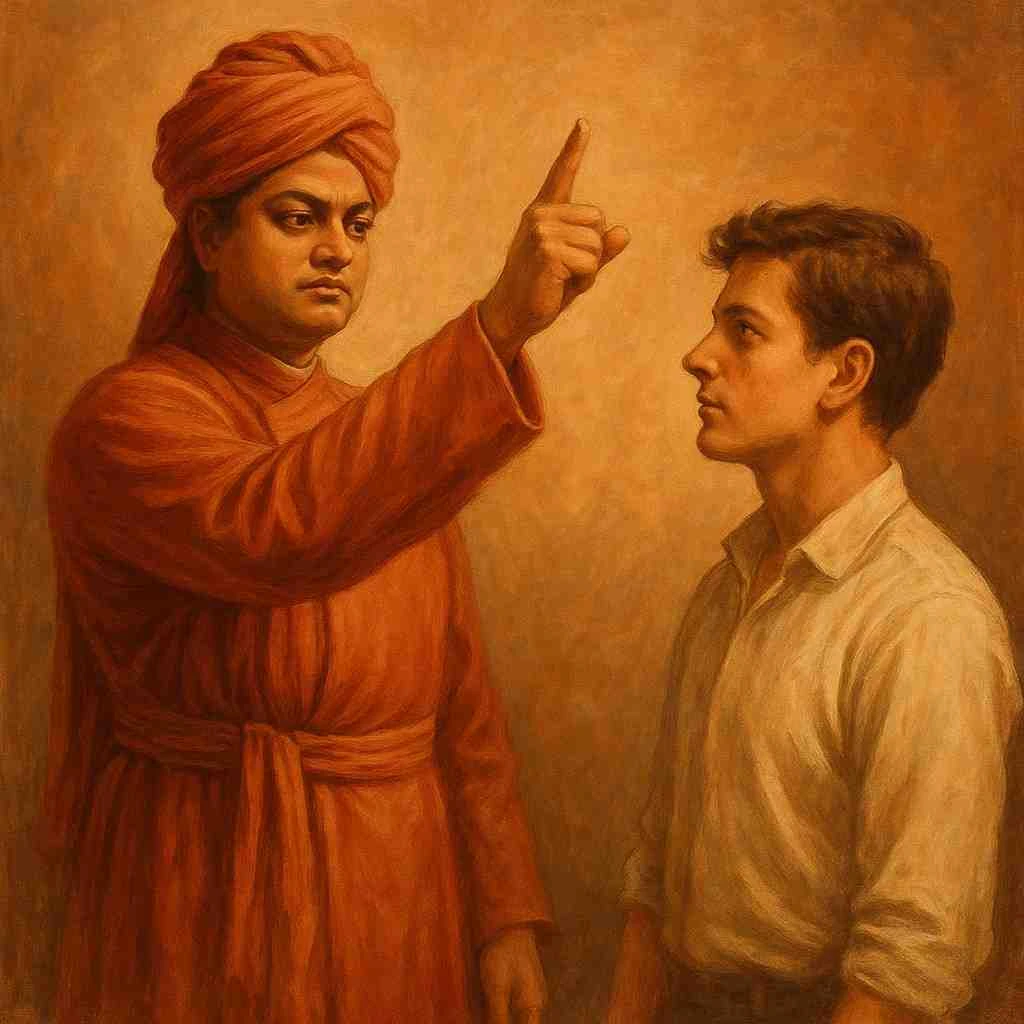Swami Vivekananda said “You Can Do Anything” — But How?
Swami Vivekananda’s famous assertion, “You can do anything”, is not just an inspirational line; it is a complete philosophy of human potential. To Vivekananda, every individual carries within themselves immense strength, courage, and creative power, often hidden beneath self-doubt and fear. When he said that one can achieve anything, he was not speaking metaphorically. He truly believed that human beings are capable of greatness because they carry the spark of divinity within. The real question is — how does one awaken this inner power? How does one transform weakness into strength and potential into action? This article explores the deeper meaning behind his words and the practical path he suggested for turning this ideal into reality.
Vivekananda emphasized that the greatest obstacle in human life is not external hardship but a lack of belief in oneself. According to him, self-confidence is the very foundation of success, whether in the spiritual world or the material world. When he said “You can do anything,” he meant that if a person first develops unshakable faith in their own abilities, half the battle is already won. He believed that a weak mind creates fear and confusion, while a strong mind creates opportunities. To him, confidence was not arrogance; it was inner conviction born from understanding one’s true nature. The moment a person realizes “I am capable,” their entire life begins to change.
Another core idea behind Vivekananda’s teaching was the power of concentration. He often said that the difference between an ordinary person and an extraordinary one lies in their ability to focus. According to him, the human mind has limitless potential, but most of it is scattered in distractions, worries, and unnecessary thoughts. When a person learns to direct all their energy toward a single goal, they naturally move toward success. This is why he insisted that concentration is the secret behind all achievements—scientific, spiritual, or personal. In his view, a focused mind becomes like a torch that cuts through darkness, showing the path clearly.
Vivekananda also believed that courage is essential for achieving anything meaningful. Life will always present challenges, failures, and obstacles, but courage allows a person to keep moving despite difficulties. For him, courage was not the absence of fear, but the ability to act even when fear exists. He repeatedly encouraged people to face life with boldness and strength. According to him, every failure teaches something, and every difficulty builds character. A life without challenges cannot produce a strong individual. So when he said “You can do anything,” he meant that with courage, even the impossible becomes possible.
Hard work was another non-negotiable element in Vivekananda’s philosophy. He never believed in shortcuts or luck-based success. He insisted that success belongs to those who work tirelessly with sincerity and dedication. Dreams may inspire a person, but it is effort that turns dreams into reality. In many of his lectures, he said that great achievements require discipline—discipline of thought, discipline of action, and discipline of character. In his eyes, a person who is willing to work hard becomes unstoppable, regardless of their background or circumstances.
Vivekananda also highlighted the importance of purity—purity of thought, intention, and action. He believed that a pure mind is naturally powerful, whereas a mind full of negativity, jealousy, and fear becomes weak. To him, purity did not belong only to saints; even an ordinary person could strengthen their mind simply by cultivating truthfulness, kindness, and compassion. Such qualities, he believed, give inner stability and clarity. A pure mind becomes calm, and a calm mind becomes capable of solving any problem.
Another key part of Vivekananda’s teaching was service to others. He believed that when a person goes beyond self-centered motives and begins to serve humanity, they tap into a higher source of strength. Helping others does not make a person weak; it expands their heart and makes them more courageous. Compassion, according to him, is a form of spiritual power. By serving society, an individual becomes more confident, noble, and capable of great achievements.
Vivekananda also taught that a person must never stop learning. Life is a continuous journey of growth, and those who keep their mind open to knowledge become wiser and more capable with time. He encouraged scientific thinking, critical inquiry, and openness to new ideas. For him, knowledge was not limited to books; real knowledge comes from experience, observation, and reflection.
Ultimately, when Vivekananda said, “You can do anything,” he was pointing toward the divinity within every human being. He believed that every soul is inherently powerful and pure. If a person recognizes this truth, stops doubting themselves, works with dedication, cultivates courage, and keeps their mind pure and focused, then no goal remains beyond reach. His message is timeless because it speaks not only to the intellect but to the heart. It lights a fire within individuals, reminding them that greatness is not for the chosen few—greatness is the birthright of everyone who dares to believe in themselves.
~Religion World Bureau










